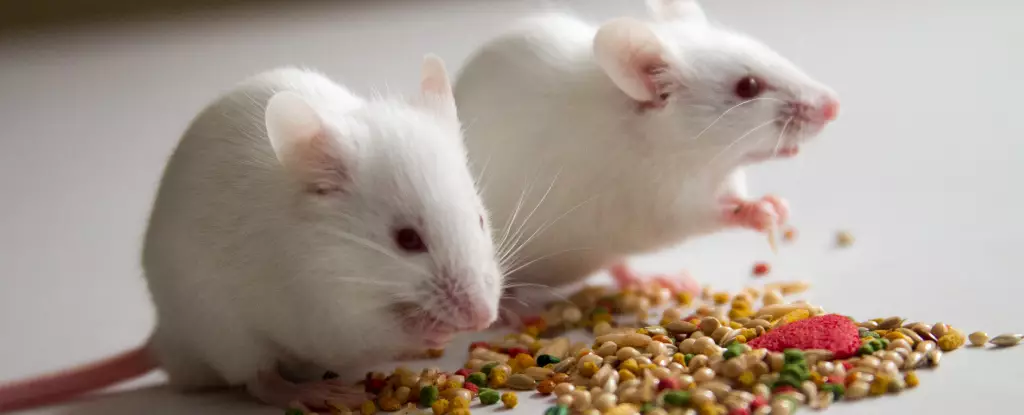In recent years, the quest for longevity has led researchers to explore the intriguing connection between caloric intake and lifespan. A groundbreaking study involving nearly 1,000 genetically diverse female mice has shed new light on this relationship, offering insights that could extend beyond the animal kingdom to human health. While previous research has consistently indicated that various species, ranging from primates to simple organisms, may enjoy longer lives through reduced caloric intake, the implications for human diets remain complex and multifaceted.
The recent study reinforces the idea that calorie restriction can lead to significant metabolic changes and weight reduction, which may contribute to increased longevity. The mice subjected to a rigorous calorie-restricted diet exhibited an average weight loss of nearly 25% compared to their counterparts on a standard diet. Moreover, these calorie-restricted mice enjoyed an average lifespan increase of approximately 9 months, equating to an impressive 30% rise in lifespan when viewed in context of their life cycles.
However, the study’s findings also underscore the variability in outcomes among the calorie-restricted groups. While some mice thrived under stringent dietary limitations, a notable subset faced challenges, suggesting that the benefits of caloric reduction are not universally applicable. This heterogeneity implies that genetic predispositions could significantly influence who benefits most from reduced caloric intake.
The study highlighted the critical role genetics played in determining which mice lived longer lives. Surprisingly, the correlation between weight loss and longevity was not as straightforward as one might think. Mice that retained more weight tended to enjoy longer lifespans, challenging the conventional belief that weight management directly influences mortality rates. Those individuals with a robust immune response, characterized by a higher count of infection-fighting white blood cells, also had a greater chance of survival, while other factors such as the consistency of red blood cell size further impacted longevity odds.
These observations indicate an emergent understanding that the relationship between diet and lifespan is a nuanced intersection of metabolic health, genetic variation, and physiological resilience. Thus, rather than viewing caloric restriction as a one-size-fits-all solution, it’s essential to consider the broad array of factors that could influence long-term health outcomes.
Given the complexities revealed in the mouse study, there’s a compelling need to reevaluate how humans approach dietary practices aimed at longevity. While intermittent fasting and dietary restrictions have garnered popularity in health and wellness circles, these practices may yield unexpected or diverse results across different individuals. The nuances seen in mouse metabolism raise essential questions about how closely we can translate these findings to human physiology.
Human bodies are marked by a variety of genetic, hormonal, and lifestyle factors that can impact how caloric intake affects overall health. Consequently, while responsibly managing weight and considering caloric intake remains valuable, acknowledgment must be given to individual differences and their implications for dietary recommendations. Simple calorie counting may not suffice; rather, a comprehensive evaluation of personal health profiles, genetics, and metabolic variances will be key.
Although the findings of the mouse study lend support to the potential benefits of caloric restriction, caution should guide our interpretation and application of these results to human health. The complexity of life, health, and genetics cannot be overstated, reminding us that longevity is not solely a matter of caloric intake. Rather, a holistic perspective integrating responsive diet, lifestyle, and holistic health measures may play a more pivotal role in our pursuit of a long and healthy life.
As we continue to explore how diet can influence longevity, it’s essential to embrace a more nuanced understanding that champions personalized health strategies. By focusing on sustaining good health through a combination of balanced diet, physical activity, and considering our unique genetic make-up, we may indeed pave the way for not just a longer life but a more fulfilled and quality existence.

